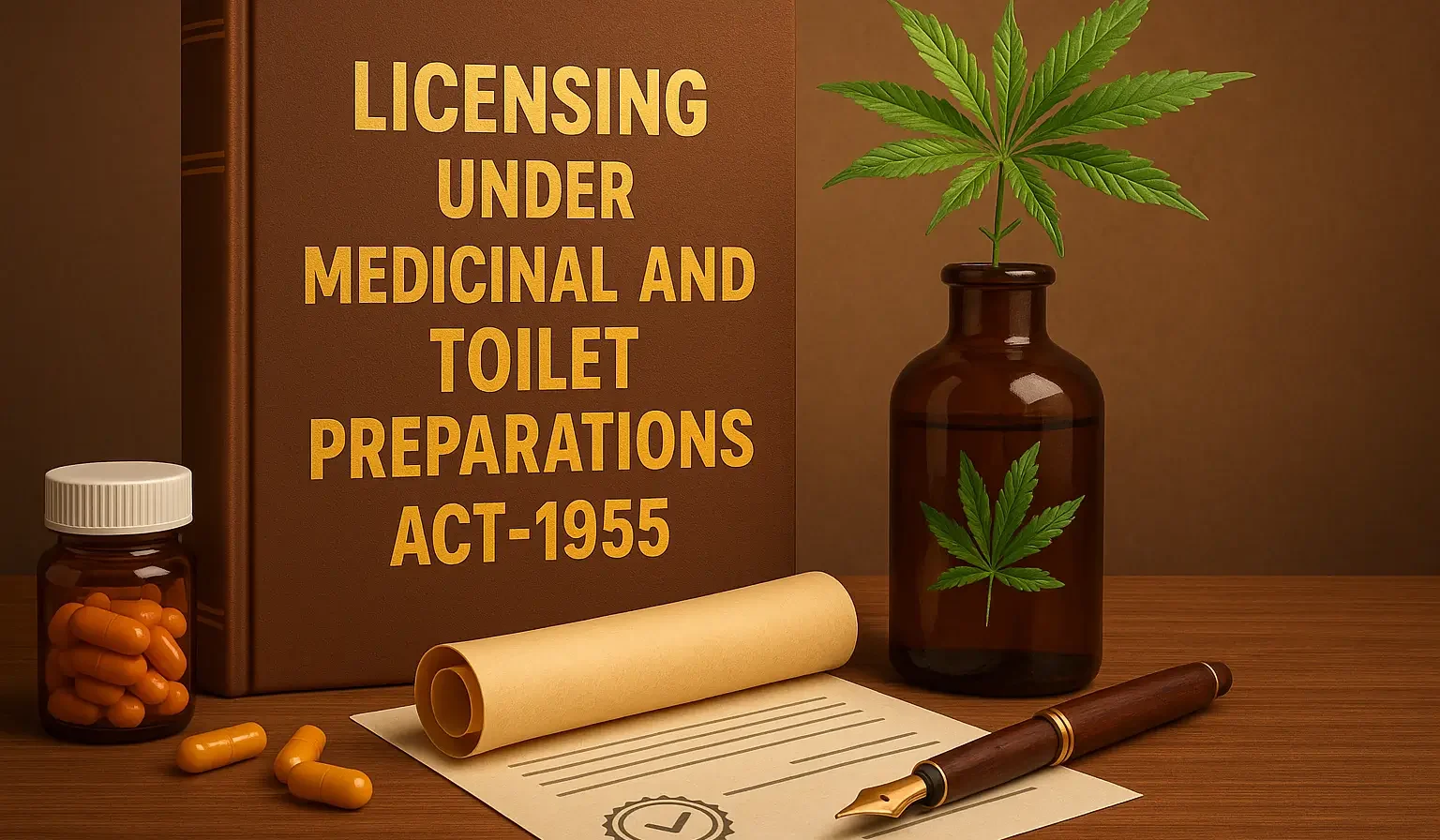This article explains about licenses under Medicinal and Toilet Preparation Act 1955 including types of procedures and requirements for alcohol-based products.
- Licensing is a critical component of the Act, ensuring that only authorized entities can manufacture, distribute, or sell medicinal and toilet preparations.
Types of Licenses Under Medicinal and Toilet Preparation Act 1955:
- Manufacturing License: For manufacturing medicinal and toilet preparations.
- Manufacturer A: Large-scale production.
- Manufacturer B: Small-scale or specialized production.
- In Bond License: Allows manufacturing without immediate tax payment, typically for export.
- Outside Bond License: For manufacturing intended for domestic consumption, ensuring national standards.
- Export License: Required for exporting alcoholic medicinal preparations, ensuring compliance with international standards.
- Ayurvedic/Homeopathic/Patent & Proprietary License: For manufacturing traditional or proprietary preparations.
Application Process:
- Submission: Complete prescribed forms with details about the manufacturing facility and safety measures.
- Documentation: Include proof of ownership, equipment, raw materials, and compliance certificates.
- Inspection: Licensing authority inspects the premises for compliance with hygiene, safety, and quality standards.
- Approval and Issuance: License granted after successful inspection, specifying manufacturing conditions.
Advertisements
Conditions of License:
- Compliance with Standards: Adhere to prescribed quality, safety, and efficacy standards.
- Proper Record-Keeping: Maintain records of production processes and raw materials.
- Regular Inspections: Facilitate periodic inspections for ongoing compliance.
- Renewal: Licenses require periodic renewal based on continued adherence to standards.
- Modification and Transfer: Changes in ownership or processes need prior approval from the licensing authority.

